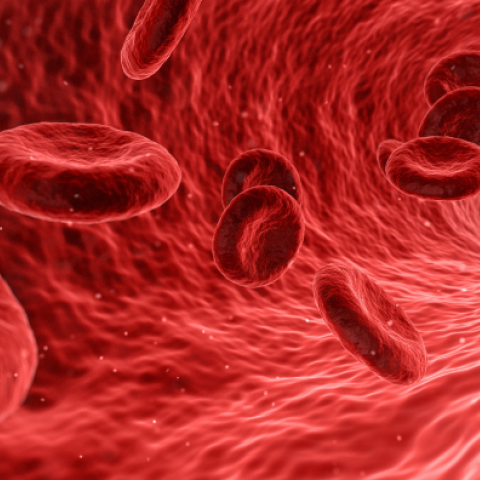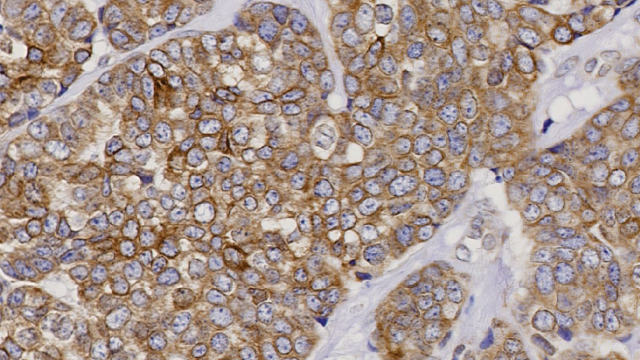
Artist depiction of blood cells flowing through a blood vessel.
Image Credit: qimono from Pixabay
An immune protein signature more often found in the blood of men of African ancestry is associated with an increased risk of lethal prostate cancer, according to a new study led by Stefan Ambs, Ph.D., M.P.H., Senior Investigator in the Laboratory of Human Carcinogenesis. Results from the study, which analyzed blood samples from nearly 3,000 African American, European American and Ghanaian men, appeared April 1, 2022, in Nature Communications.
Men of African ancestry are more likely than men of European American ancestry to develop prostate cancer, including metastatic disease, which is very difficult to treat and is almost always lethal. “You don’t die because of the tumor; you die because of the metastasis,” says Ambs, whose ongoing work at CCR addresses these devastating cancer health disparities.
When a tumor metastasizes, cells break off from the primary tumor and spread, mostly via the bloodstream, where they can travel to distant sites like lungs, liver or bones and form new tumors. This is a complex process that involves factors inherent to the cancer cells and factors that support the formation of distant metastasis.
Ambs’ team analyzed 82 different blood-derived proteins from participants of African and European ancestry. They found that proteins known to suppress the ability of the immune system to control tumor growth, known as tumor immunity, were more prevalent in African American and Ghanaian men, and the presence of these proteins was associated with worse outcomes for men with prostate cancer. This makes sense because cancer more easily evades immune system surveillance and spreads when tumor immunity is suppressed, explains Ambs. “There’s something already in the circulation that influences the metastatic process,” Ambs says. “This is systemic in these patients and may relate to the presence of inflammation.”
Their research also revealed that men with African ancestry in this study population were most likely to have lethal prostate cancer when they had high blood levels of two specific proteins: Pleiotrophin, a protein normally found during embryonic development, and a soluble form of TNFRSF9, a receptor protein usually expressed on immune system cells, that has been linked to immune suppression in its soluble form. These proteins are known to influence tumor health and immunity. The team posits that when these proteins are at high levels, the immune system fails to recognize the cancer cell and destroy it, putting a person at risk of metastatic and lethal disease.
The team’s next step is to validate the protein signature found in this study and explore if it predicts increased lethality for other cancers. They also want to understand if they can target the immune suppression signature with prostate cancer immunotherapies.
Moreover, this work supports the goal to understand cancer-related health disparities in the African American population. “We find that African ancestry genetics explains only a fraction of the variation in suppression of tumor immunity,” Ambs says. “A large proportion of why that pathway is different in one person versus another is unknown and may relate to a systemic inflammatory process.”


